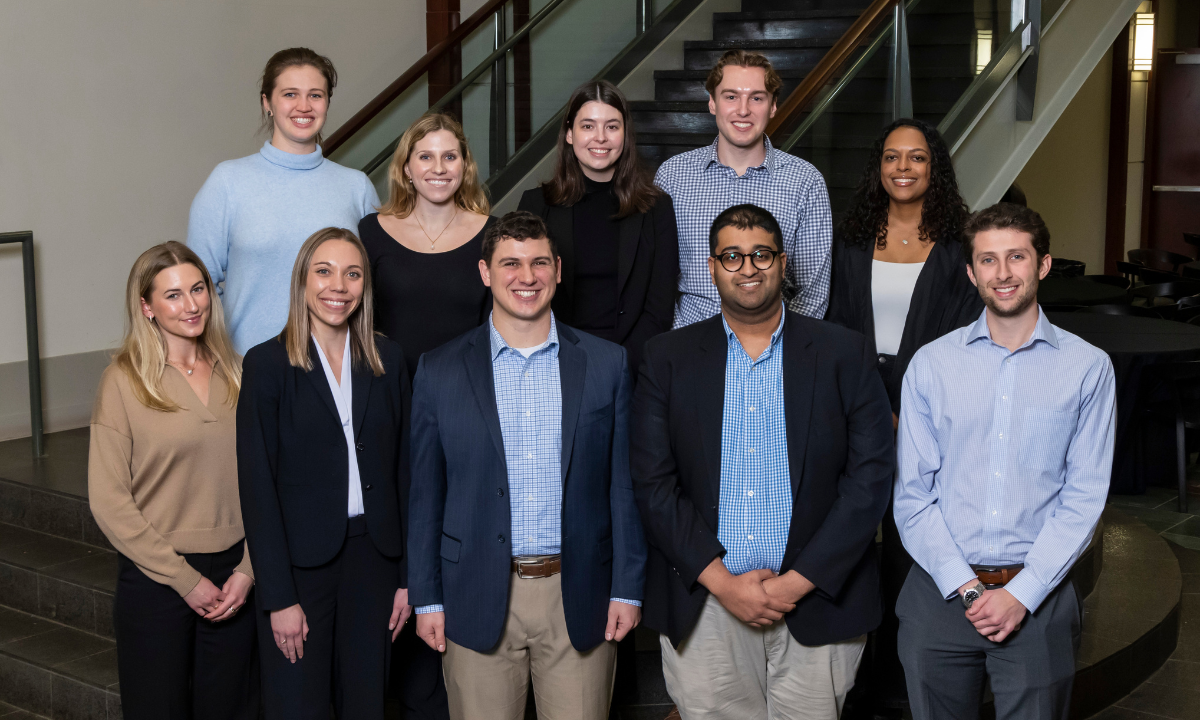Gautam Rana ’97, a career diplomat who became U.S. Ambassador to the Slovak Republic in September 2022, identified disinformation disseminated via social media platforms and other internet media as a global threat in the 2023 Jonathan I. Charney Distinguished Lecture in International Law at Vanderbilt Law School on Oct. 12.
Rana is a career member of the U.S. Foreign Service. Before his appointment as Ambassador to Slovakia, he was the Deputy Chief of Mission and long-term Chargé d’Affaires ad interim in the U.S. Embassies in Algeria and Slovenia. He also served as a director for Afghanistan and Pakistan at the National Security Council from 2014 to 2015. After joining the Foreign Service in 2002, he was the Special Assistant to Assistant Secretary for European and Eurasian Affairs Daniel Fried. From 2009 to 2010, he worked for Deputy Secretary of State James Steinberg as Special Assistant for South and Central Asia, the Middle East, and counterterrorism. His diplomatic postings include Khost, Afghanistan; Peshawar, Pakistan; and Abu Dhabi, United Arab Emirates.
Key takeaways from Rana’s talk:
- Democratic governments have taken different approaches to laws protecting and limiting free expression. The European Union’s recently passed Digital Services Act is its “latest attempt to address this issue.” Rana noted that all EU countries regulate speech more strictly than the United States, citing German laws prohibiting public speech denying the Holocaust and the dissemination of Nazi propaganda.
- The European Union’s recently adopted Digital Services Act and Digital Market Act together form a set of rules intended to reduce the spread of disinformation that apply in all 27 EU nations. The Digital Services Act requires Facebook, Amazon, Google, and other large platforms to put in place systems to identify and control the spread of misinformation, hate speech, and terrorist propaganda. Smaller platforms will soon also be required to comply with all DSA rules.
- Disinformation presents a persistent national and global security risk, in part because of the speed with which disinformation can be spread. “Disinformation is a problem that’s not going away,” Rana said, noting that the U.S.’ “military superiority once guaranteed our primacy, but no more. Countries that cannot compete with us conventionally can now undermine us with disinformation.”
- People, not territory, are now the key battle space. “In this new era of competition and influence, campaigns of disinformation aim to undermine liberal democratic values and governments and create doubts about political institutions,” Rana said. Some campaigns have successfully influenced local and national elections by spreading false information about elected officials and candidates.
- Countries that severely restrict free speech domestically, such as China and Russia, are major sources of disinformation globally. Rana cited a 2003 Chinese miliary analysis that identified controlling public discourse worldwide to advance China’s positions and undermine the positions of others as an important way to undermine the global influence of the U.S. Russia’s current goals in Europe included disrupting effective functioning of government institutions and undermining EU and NATO support for Ukraine, while one of China’s major goals is to prevent European countries from taking a unified position against China.
- The Digital Services Act signals that the EU takes the threat of disinformation seriously and is taking unified action to combat it. The Digital Strategies Act‘s head of regulation publicly criticized the platform X, formerly Twitter, for permitting the use of its platform to disseminate and promote propaganda related to the Hamas attack on Israel.
- Governments and platforms will need to work together to achieve a balance that protects people from dangerous disinformation while still supporting freedom of speech. “One big difference that makes the situation more dangerous is the speed at which disinformation can spread,” Rana said.
The Jonathan I. Charney Distinguished Lecture in International Law honors the late Professor Charney, one of the world’s preeminent experts on international law and a renowned expert on the law of the sea, who held the Lee S. & Charles A. Speir Chair at VLS until his death in 2002.
